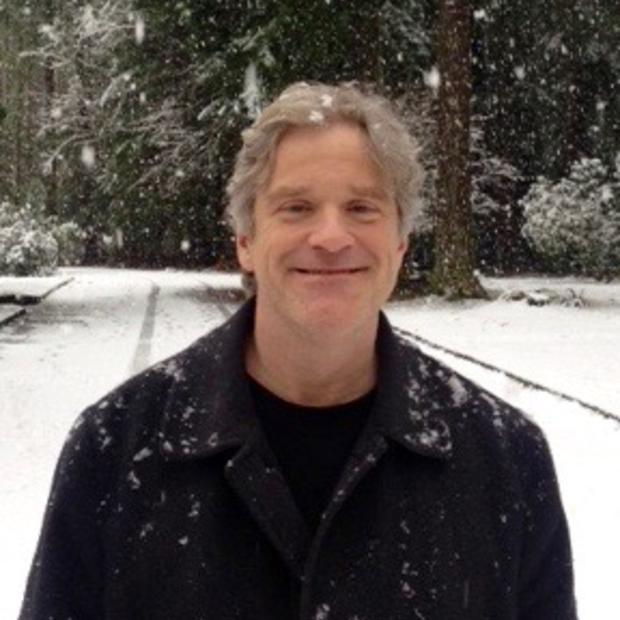Bellevue developer Kemper Freeman (the top hat) and fellow developer Wright Runstad (the racecar) are both sitting on "Community Chest" spaces of the Monopoly board, waiting for the voters of Bellevue (the wheelbarrow? the Scottie dog?) to roll the dice. As the Seattle Times' Keith Ervin writes this morning, the Bellevue city council elections have become a platform for two competing development visions. "Freeman opposes the use of citywide taxes and fees to help pay for the roads that would serve the retail, housing and office development, with its light-rail station, which he also believes is a waste of money," Ervin writes. "His opposition helps explain why Freeman is backing one group of City Council candidates, while business rival Wright Runstad is supporting a different group. Both developers know the election's outcome will help decide where the next big burst of commercial growth takes place in Bellevue, and who pays for it."
While Freeman concentrates on additional downtown development, Wright Runstad is invested in the Bel-Red Corridor tucked between downtown and Microsoft's Redmond headquarters. Which begs the question, how do organizers manage voter ID in Bellevue? Do you consider yourself an R (Runstad) or an F (Freeman)?
Peter Callaghan of the Tacoma News Tribune de-fogs I-1183, the liquor-privitization initiative, by stepping back from the blitz of confusing ads. Vote for it, and you imperil firefighters. Vote against it, and you imperil firefighters. Who knew hooch was the key to fire suppression? "I’m all for public safety and everything," Callaghan writes. "But since the cops and firefighters featured in the dueling TV ads can’t agree about Initiative 1183, I’m left to ask: What’s in it for consumers?"
Callaghan does an excellent job de-layering the initiative, its political history, and the role of mark-ups and state taxes. Ultimately, however, the question can be reduced to the following: Will boozers save or not save on their/our sauce of choice? Callaghan writes, "Given that the measure is written for Costco and the campaign is funded by Costco (with a record $22.5 million cash and in-kind as of Monday), Costco must think it will be able to offer lower prices, perhaps with private-label brands such as Kirkland. But to be the price leader in the market, Costco and big chains don’t have to be cheap, just cheap-er than competitors."
Austin Jenkins illuminates a question that dates to the Cold War: Is it appropriate for a governor or other elected official to play human-rights ambassador? "Last week, while Gregoire was in China, a Tibetan monk urged her to address the issue of recent self-immolations by young religious leaders in Tibet," Jenkins reports. "Gregoire's spokeswoman says the governor takes human rights seriously, but the issue did not come up during the trade mission and, she adds, the U.S. State Department is the more appropriate agency to raise these issues."
This is a rich and complex issue, knit together by a critical trade relationship. Nevertheless, the Arab Spring serves as a reminder that it's wise to be on the right side of history. Should state lawmakers smile, shake hands, and remain silent on Tibet or the trambling of the Uyghurs? Jenkins notes, "A China expert for Amnesty International disagrees. T. Kumar believes American governors have a 'duty to speak up' on human rights. And he questions why Gregoire would defer to the State Department on this issue, but not the Department of Commerce on trade." As Andrei Sakharov and other Russian dissidents understood, Americans often seem to take sides by not taking sides.
Occupy Seattle is not chaotic or ungovernable. It benefits from a General Assemby, as The Stranger's Dominic Holden reminds readers. "If you've never been, the General Assembly meets every evening at 6:30 p.m. and makes all final decisions for the 'collective.' It operates on a system akin to Robert's Rules if Robert had, say, just ingested a pound of ecstasy." Okay, something like a cross between a Kibbutz and a Quaker meeting.
Holden continues, "When one person speaks, everyone in the audience repeats it (a process called the people's microphone). This electricity-free amplifier is legal without a permit and keeps you engaged because you say everything that every speaker says, and you wind up digesting the ideas." Okay, add in an AA meeting, "My name is Pedro, and I'm an OS protester." But there's more: "When you agree with a speaker you 'twinkle' your fingers (upwards jazz hands); when you disagree, you de-twinkle (downward jazz hands). You eventually vote on proposals, but there is much blocking, revoting, and calls for clarity of process," Holden writes. That confirms it then: Occupy Seattle has sold out and embraced "The Seattle Way."
Lastly, can nostalgia be expressed in rebar and cement? Seattle Met's Christopher Werner revisits the suggestion that part of the Alaskan Way Viaduct become a park, like New York's High Line. "The High Line is Manhattan’s urban wonder park," Werner writes. "The nearly mile-and-a-half-long rehabbed railroad winds through Chelsea, the Meatpacking District, and Hell’s Kitchen.
Since opening in the summer of 2009, with a second section debuting this past June, the elevated promenade has triggered restaurant, retail, and condo activity, and played host to dance workshops, public art, farmers markets, and festivals." Alas, it's probably too late. Just like the Bubbleator from the 1962 World's Fair, sections of the Viaduct will likely find a final resting place in someone's backyard.
Link summary
Seattle Times, "Bellevue council elections divide developers"
Tacoma News Tribune, "TV bickering aside, what would 1183 do to price?"
KUOW, "Wash. Gov: Trade Missions not the venue for pressing human rights"
The Stranger, "Three hours with Occupy Seattle's General Assembly"
Seattle Metropolitan, "Turn the Viaduct into a Park"


